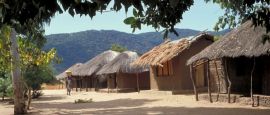Malawi: Doing business & staying in touch
Doing business in Malawi
Suits or a jacket and tie are suitable for business meetings in cities. Similar to the European system, appointments should generally be made and business cards are used. Offices tend to open early in Malawi. Best months for business visits are May to July and September to November.
The economy is almost entirely agricultural but the manufacturing industry now accounts for about 15% of economic output. Manufacturing is concentrated in light industrial import substitution projects such as textiles, chemicals, agricultural implements and processed foodstuffs. Tourism is intended to become a major source of foreign exchange but this will depend on improvements in basic infrastructure and political stability in the region.
In 2006, the economy grew by 6.4%, while inflation was 14%. Recent economic policy has followed an orthodox course of privatisation, deregulation and government spending cuts. The latter have had a severe impact on the country's already limited basic services, especially healthcare. Between one-third and one-half of the working population are thought to be infected with HIV/AIDS, with the inevitable economic consequences.
Malawi is normally self-sufficient in food, especially maize, the main staple. But it also has a vast balance of payments deficit and is heavily dependent on foreign aid, both bilateral and from the World Bank.
Malawi's only dedicated conference centre is the Kwacha International Conference Centre in Blantyre, with seating for up to 500 people. Details of this and hotels with conference facilities can be obtained from the Malawi Tourism (see Contact Addresses).
Food, petroleum products, semi-manufactured goods, consumer goods and transportation equipment.
Keeping in Touch in Malawi
Roaming agreements currently exist with many international mobile phone companies. Coverage is good in urban areas.
Generally Mon-Fri 0730-1200 and 1300-1700. Post offices in some of the larger towns may be open Sun 0900-1000, but only to sell stamps or to accept telegrams.
Radio is the chief source of information and state-run MBC is the main national broadcaster. Television was introduced in 1999. Privately owned publications present a range of opinions, although the government has used libel and other laws to put pressure on newspaper journalists.
• There are two main daily English-language newspapers, The Daily Times and The Nation.
• The Malawi News is published weekly.
• Boma Lathu is a monthly, Chichewa-language publication.








 You know where
You know where